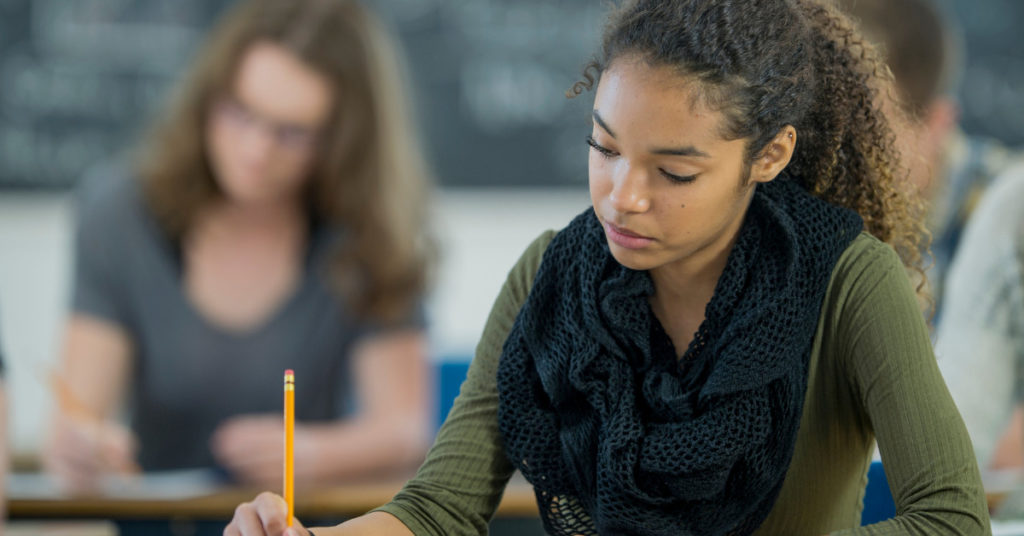The disruption in school brought upon by the COVID-19 has practically upturned the UK’s education system. Now that schools have resumed face-to-face classes, teachers and instructors are now focusing once more on pushing their students to prepare for their GCSE maths exams.
The current GCSE maths exam is extremely challenging and requires students to be mentally sound. That’s why teachers need to have some effective GCSE teaching strategies and resources, such as.
1. Use Real-World Applications for Maths Problems
Part of the reason students find GCSE Maths topics boring is because it is taught with too much emphasis on formulae and procedures. Students tend to forget maths is not just about formulae; it is also about logic and reasoning. Which is why students often spend maths lessons on calculations, and there is barely any time for them to reflect on the thoughts behind the calculations.
Students should not perceive GCSE Maths topics as tedious. They are more likely to be more interested in the concepts they are learning if they apply the concepts they learn in real-world scenarios. For example, when students learn about the Pythagorean Theorem, they can have fun by solving puzzles involving the shape. Or they want to hear about how the theorem is useful for two-dimensional navigation.
2. Create an Atmosphere for Maths Discussions
A lot of GCSE maths exam questions are set in a way that requires students to carry out a conversation using numbers. This means that to solve these questions, students need to understand the importance of numbers and how they relate to each other. It also means that students need to explain in words what they have been doing to arrive at the answer.
Teachers should create an atmosphere that encourages students to talk about their maths problems. They can do it by asking students to explain their answers to each other in a collaborative environment. This also helps build students’ confidence in explaining their answers and develop their critical thinking skills. Teachers may also think about using SchoolOnline in their classrooms. The platform gives students access to over 900 tutorial step-by-step videos covering the topics they need to master for success.
3. Keep the Pace Steady
The GCSE Maths exam has questions where students are not allowed to use a calculator, use their head and show their workings. Which is why it is very easy for students to make mistakes when they are not 100% focused.
Because of the high stakes of the GCSE maths exam, there is no room for students to make mistakes, so they cannot miscalculate or misread. Also, students may find it challenging to answer the questions and stay focused in the time given. Teachers should slow down the pace at which they ask questions, but ensure that they time students when they fill out test questions. In order to make sure that the pace is not too slow and boring, teachers should work with students on questions of varying levels – some that require students to stay focused, and some that are a little more complicated and require students to use their brains.
4. Remind Students That Their Skills are Transferable
It is important to keep in mind that GCSE maths exams are rigorous. Students need to remember that the exams are an important part of their academic journey and have significant consequences, affecting further study and career choices. Therefore, it is completely understandable students may feel anxious about their exams because they are afraid that they will not perform well.
Teachers need to help students look at the bigger picture by reminding them that the skills and knowledge they have gained through GCSE maths will be useful for their future studies. This is especially true for students who want to pursue science-related subjects.
5. Encourage Students to Understand the Concepts
As stressful as the GCSE maths exam can be, it is also important to note that after a student has done their best, there is nothing else they can do. Students can find it frustrating when thinking back and not being satisfied with their answers, even though they have worked hard.
One way to avoid this problem is to explain the concepts and ideas behind the questions that students find difficult to solve. Teachers can then ask students to solve the problems on their own. If there are different ways to solve the problem, then the teacher should show the different strategies and approaches to solve maths problems. This helps the students to be creative and develop their own methods of thinking and solving Maths problems.
Conclusion
The GCSE Maths topics help students build a solid foundation in maths. It’s crucial for students to reflect on the ideas they encounter and to make sure that they understand the concepts and ideas behind the ideas. These strategies are designed to build upon these concepts and help students prepare better for their exams.
Studying for GCSE maths can be quite rigorous. But with the help of SchoolOnline, we can make you better prepared and more confident to take the exam. We have a range of GCSE maths topics designed to aid you in your revision. Turn your hard work into exam success today by choosing SchoolOnline!


